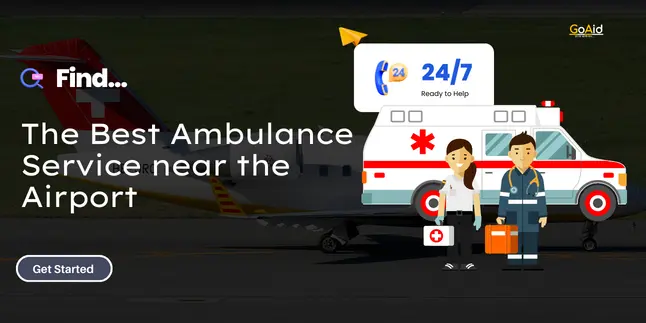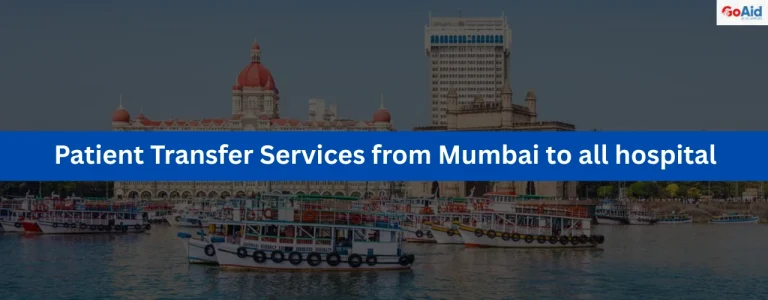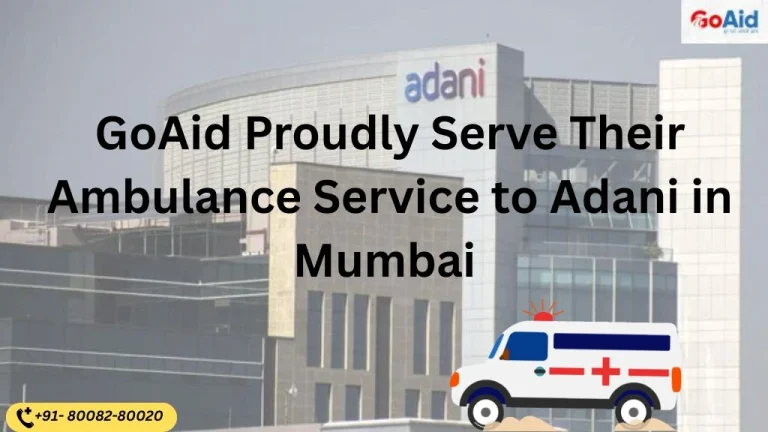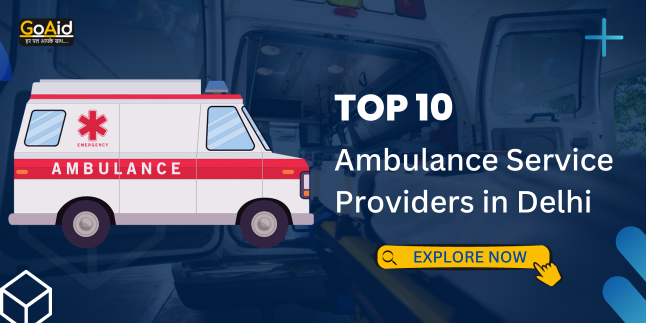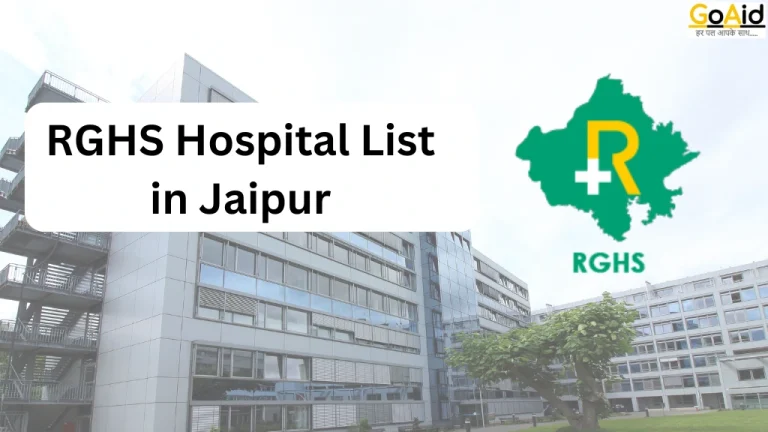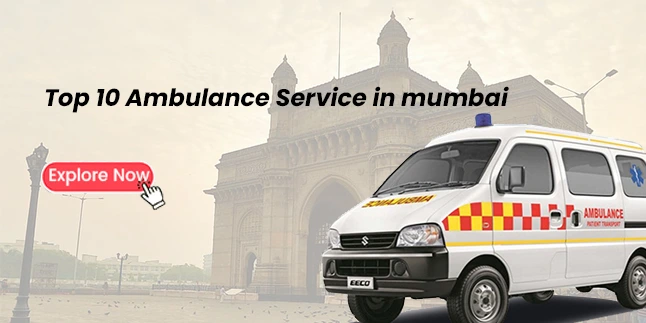Sometimes, people are not aware of the Ambulance Service Near the Airport. These kinds of ambulance services are dedicated to providing efficient & responsive ambulance service to those who are going to use the airport for any transportation purposes.
This is why, in this blog, we have tried to provide you with all possible knowledge of Ambulance Service near the Airport. If you are also willing to know everything about Ambulance Service near the Airport then read this blog entirely.
So, letŌĆÖs start-
What is an Ambulance Service Near the Airport?
Ambulance Service Near the Airport is a specialized emergency medical transport service strategically positioned to cater to medical emergencies in and around airport premises. With a focus on rapid response and efficient navigation, these services ensure prompt assistance for passengers, airport staff, or nearby residents.
Equipped with advanced life-support systems, trained paramedics, and quick access to airport facilities, these ambulances address health crises effectively. Whether responding to passenger emergencies, accidents on airport grounds, or incidents in surrounding areas, Ambulance Service Near the Airport plays a crucial role in providing immediate and expert medical care in critical situations.
Why Ambulance Service Near the Airport Useful? ŌĆō Importance of Ambulance Service Near the Airport
1. Swift Response to Emergencies:
Ambulance Service Near the Airport ensures a quick response to medical emergencies, crucial in time-sensitive situations.
2. Efficient Handling of Passenger Incidents:
Addresses passenger health incidents promptly, minimizing disruptions and ensuring timely medical attention.
3. Timely Response to Accidents on Airport Grounds:
Plays a vital role in responding promptly to accidents occurring within the airport premises.
4. Critical Support for Airport Staff:
Offers immediate medical support to airport staff facing health crises during their duties.
5. Expert Handling of Travel-Related Health Issues:
Specialized in addressing health issues arising from travel, catering to the unique needs of passengers.
6. Quick Access to Airport Facilities:
Strategically positioned for swift access to airport facilities, enhancing efficiency in medical response.
7. Ensuring Passenger Well-Being:
Prioritizes passenger well-being by providing rapid and effective medical assistance during emergencies.
8. Coordination with Airport Authorities:
Collaborates seamlessly with airport authorities for efficient handling of medical incidents.
9. Addressing In-Transit Health Emergencies:
Specializes in addressing health emergencies that occur during travel, ensuring passenger safety.
10. Preventing Health Crises from Escalating:
Rapid response aids in preventing health crises from escalating, potentially saving lives.
11. Navigating Airport Traffic Quickly:
Skillfully navigates airport traffic for swift response to emergencies in crowded areas.
12. Handling Diverse Medical Situations:
Equipped to handle diverse medical situations, from minor incidents to critical emergencies.
13. Reducing Response Time for Local Residents:
Extends services to nearby residents, ensuring a quicker response to emergencies in the surrounding areas.
14. Enhancing Airport’s Emergency Preparedness:
Contributes to the airport’s overall emergency preparedness, bolstering its capacity to handle unforeseen medical incidents.
15. Minimizing Disruptions to Airport Operations:
Swift medical response helps minimize disruptions to airport operations caused by health emergencies.
16. Providing Comfort to Travelers:
The presence of an Ambulance Service Near the Airport provides a sense of security and comfort to travelers.
17. Supporting Special Medical Transports:
Facilitates the smooth transfer of patients requiring specialized medical transport, such as organ transplants.
18. Collaboration with Local Healthcare Providers:
Collaborates with local healthcare providers for seamless continuation of medical care beyond the airport.
19. Assisting with Inbound Medical Evacuations:
Assists with inbound medical evacuations, ensuring a smooth transition for patients requiring immediate attention.
20. Contributing to Community Health and Safety:
Extends its role beyond the airport, contributing to the overall health and safety of the local community.
How to find the best Ambulance Service Near the Airport
Finding the best Ambulance Service Near the Airport involves careful consideration and research. Here’s a guide on how to identify the most reliable service:
1. Online Reviews
Check online reviews and testimonials from previous users to gauge the service’s reputation and reliability.
2. Ask for Recommendations
Seek recommendations from local healthcare providers, airports, or friends who may have experience with ambulance services near the airport.
3. Verify Licensing and Certification
Ensure the ambulance service is licensed, certified, and complies with local regulations to guarantee quality and safety.
4. Response Time
Inquire about the average response time of the ambulance service, emphasizing the importance of quick response in emergencies.
5. Equipment and Technology
Assess the level of medical equipment and technology available on the ambulances to ensure they meet high standards.
6. Paramedic Training
Check the qualifications and training of the paramedics onboard to ensure they are skilled in handling various medical situations.
7. Collaboration with Airport Authorities
Confirm whether the ambulance service collaborates seamlessly with airport authorities for efficient coordination during emergencies.
8. Communication Systems
Ensure the ambulance service has robust communication systems to stay in constant contact with both the airport and medical facilities.
9. Accessibility
Choose a service that offers 24/7 accessibility, guaranteeing assistance at any time of the day or night.
10. Coverage Area
Verify the coverage area of the ambulance service to ensure it extends to the entire airport vicinity and nearby areas.
11. Cost Transparency
Inquire about the pricing structure, ensuring transparency and a clear understanding of all associated costs.
12. Community Reputation
Assess the service’s reputation within the local community, considering its overall contribution to community health and safety.
13. Specialized Services
If required, check if the ambulance service offers specialized services, such as neonatal transport or critical care transportation.
14. Customer Service
Assess the responsiveness and helpfulness of the service’s customer support, as good communication is crucial during emergencies.
15. Years of Experience:
Consider the service’s years of experience, as longevity often indicates reliability and expertise in handling diverse medical situations.
Conclusion
In conclusion, selecting the best Ambulance Service Near the Airport requires a thorough assessment of factors like response time, equipment, paramedic expertise, and community reputation. Services like online reviews, recommendations, and verification of licensing contribute to informed decision-making.
Opting for a service that excels in emergency preparedness, collaboration with airport authorities, and transparent cost structures ensures a reliable and efficient response during critical situations. The chosen ambulance service should not only meet stringent medical standards but also prioritize seamless coordination with airports and local healthcare providers.
A careful evaluation of these aspects ensures the selection of a trustworthy service committed to passenger and community well-being.

